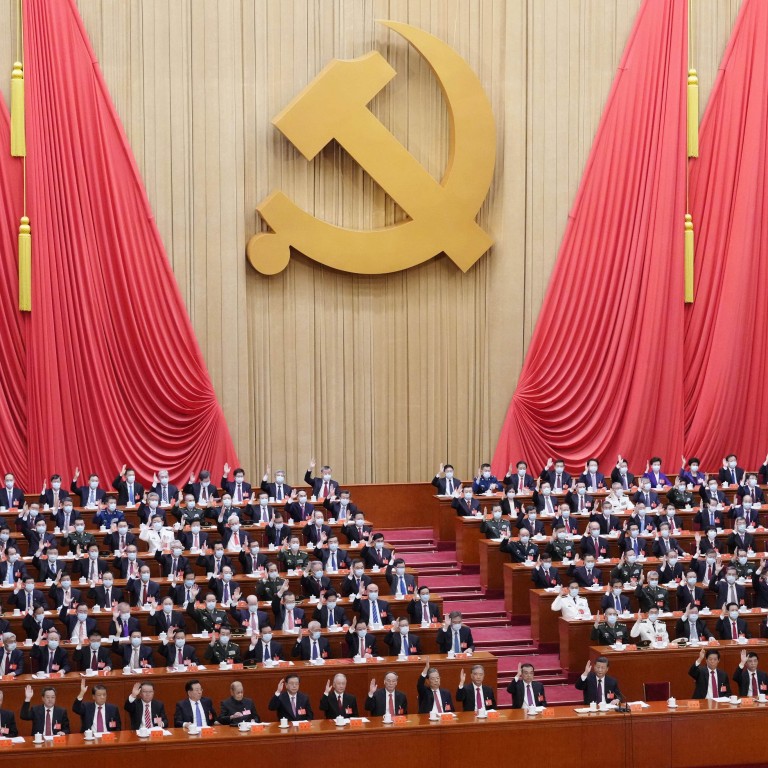
Beijing’s Taiwan timetable will not be rushed by US: China analysts
- An increasingly pessimistic Washington is predicting a mainland attack on the island as soon as this year but Chinese observers dismiss the claim
- Beijing will follow its own judgment on the Taiwan issue, regardless of the views of US officials, they said
“This is directed solely at interference by outside forces and the few separatists seeking ‘Taiwan independence’ and their separatist activities. It is by no means targeted at our Taiwan compatriots,” he said.
Xi’s speech prompted a renewed warning from the United States – this time from the head of naval operations Michael Gilday – that a mainland invasion of Taiwan could take place as soon as this year.
US Navy should plan for an invasion of Taiwan this year, fleet chief says
“What we’ve seen over the past 20 years is that they have delivered on every promise they’ve made earlier than they said they were going to deliver on it,” he said.
Gilday’s remarks came just two days after a similar prediction from US Secretary of State Antony Blinken, who said China had made a decision to seize Taiwan on a “much faster timeline” than previously thought.
Zhou Bo, a senior fellow with the Centre for International Security and Strategy at Tsinghua University, said Beijing had its own judgment over its strategy towards Taiwan, and it would not be altered by the views of US military officials.
“They’ve said this kind of thing so many times in the past, I don’t think it matters much what they say,” he said.
Last year, Philip Davidson, a retired admiral who was then head of the US Indo-Pacific Command, said Beijing’s military might try to unify Taiwan with mainland China “within the next six years”.
Taiwan has become a potential flashpoint between China and the US which, like most countries, does not recognise the island as an independent state. Washington, however, opposes any attempt to take the island by force.
Mainland China and Taiwan split in 1949 after a civil war which ended when the Communist Party defeated the Kuomintang forces, who fled to Taipei. Beijing regards the return of the island to mainland control as its core national interest.
The issue has been further complicated in recent years, by a less patient Beijing and a more progressive Washington. In May, President Joe Biden suggested the US would use force to defend Taiwan, drawing Beijing’s ire. The White House and the Pentagon later walked back Biden’s remarks.
Song Zhongping, a former People’s Liberation Army instructor, said Washington’s focus on the Taiwan issue was nothing new, but added that technology was at the heart of China-US rivalry.
“It’s not the first day for the US to say that Beijing is increasingly urgent in pushing forward a military action towards Taiwan. But the aim is to further increase its own military abilities, get more defence funding, and suppress China as a systemic competitor,” he said.
“What China should do is to keep calm, maintain its own strategic focus, do its own things well, and not care about all the similar ‘China threat’ rhetoric. The rivalry between China and the US will focus on technology, and so strengthening one’s own scientific and technological capabilities is the way forward.”
US State Department spokesman Ned Price said on Monday that China’s party congress would not lead to a change in Washington’s approach to Beijing, which he described as “perhaps the most consequential bilateral relationship we have”.
He did not mention the Taiwan issue.
“We do note the conclusion of the 20th party congress and we would welcome cooperation of [China] where our interests align, and that includes cooperation on climate change and global health, counter narcotics, non-proliferation as well,” Price said.

